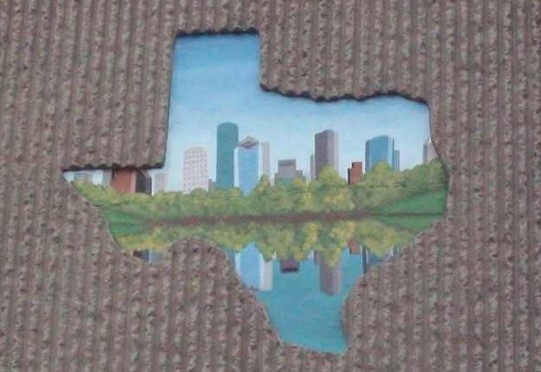So about last night. Katherine Driessen of the Houston Chronicle has the formal wrap-up…
Houston voters soundly rejected the city’s embattled equal rights ordinance Tuesday in one of the most heated local political contests in recent memory that drew national scrutiny and sparked months of impassioned back-and-forth about social issues, particularly transgender rights.
The decision leaves Houston the only major city in Texas and one of the few nationwide without some form of a nondiscrimination law. It also marks the third time Houston voters have rejected protections or benefits for gay residents, as they did in 1985 and 2001.
The equal rights ordinance, known by its acronym HERO, would have extended local protections against discrimination to 15 groups, ranging from veterans to pregnant women to gay and transgender residents, with the latter proving the biggest flashpoint for conservative opponents of the law. In recent weeks, the contest played out on a national stage, drawing comments from the White House and top state officials as well as media attention from a slew of top outlets.
Critics pinned their campaign on the controversial claim that the law would allow men dressed as women, including sexual predators, to enter women’s restrooms. Opponents’ most talked-about ad featured a man bursting into a bathroom stall occupied by a young girl as ominous music played in the background.
So that’s what happened. And here’s what you need to remember, whether you live in Houston, or somewhere else in the United States of America…
Houston , Texas is a city of 2.3 million people. Of that robust and rapidly growing number, 1 million Houstonians are eligible to vote.
Just over 1/4th of those 1 million Houstonians showed up to vote on the Proposition 1 issue. 15.7 percent of those eligible to vote in Houston rejected HERO, and 10 percent of voters wanted to uphold it. And getting over 1/4th turnout for an off/off-year election is considered “historically high”.
Voter Apathy folks… the struggle is real.
As was pointed out in an earlier post, even this 25.7 percent doesn’t give the best gauge of what our city actually thinks about HERO, as over half of those showing up were in the 65 or older demographic. Voters aged 18 to 24 came in at under 2 percent of the electorate, and when combined with those 25 to 34, the two groups were still under 10 percent. At age 59, Mayor Annise Parker herself isn’t even in the age demographic that basically made this decision. We saw some things in 2014 that were very similar.
And by the way… many Houstonians in that 65 and up bracket did support equality, so we definitely don’t want assume the values of everyone. But the demographic information is important to know.
Far from being “haters”, what we had here were a lot of good-hearted, mostly Senior Citizen folks that saw egregious TV ads and reacted as to them as many would expect. Given those facts and the very long history of equality measures being defeated when put up for a popular vote, last night’s result seems less of a surprise.
To the titular question… Houston has absolutely NOT turned into ‘Hate Town’. More like “we’re not ready” town, and “we were the latest forced to endure the embarrassment of an equality popular vote” town.
Until we figure out how to increase Civic Engagement for Houston, Texas and across the country, we’re going to deal with elections where good ideas and candidates are defeated by misinformation and malice. So before we battle for a new vote, maybe it’s time to double and triple the education effort.

I think Houston is also unique in that its voting area is much broader. Many cities don’t incorporate distant suburbs like we have Kingwood, League City, Westchase, etc. A popular vote in Houston looks more like what a state-wide vote would be in other states, meaning the conservative, suburban vote has a larger sway in our city.
When can we start de-annexing?!
Hate Town?? It’s the most diverse city in the US. It is the largest in the US on a worldly scale to elect a lesbian mayor. It brought in New Orleanians of every type, after Hurricane Katrina. It’s open for everyone way before HERO or other cities that made ordinances because there was already a lot more equality in H-town that it never saw a serious want, before, for an ordinance because it’s a do it on your own city.